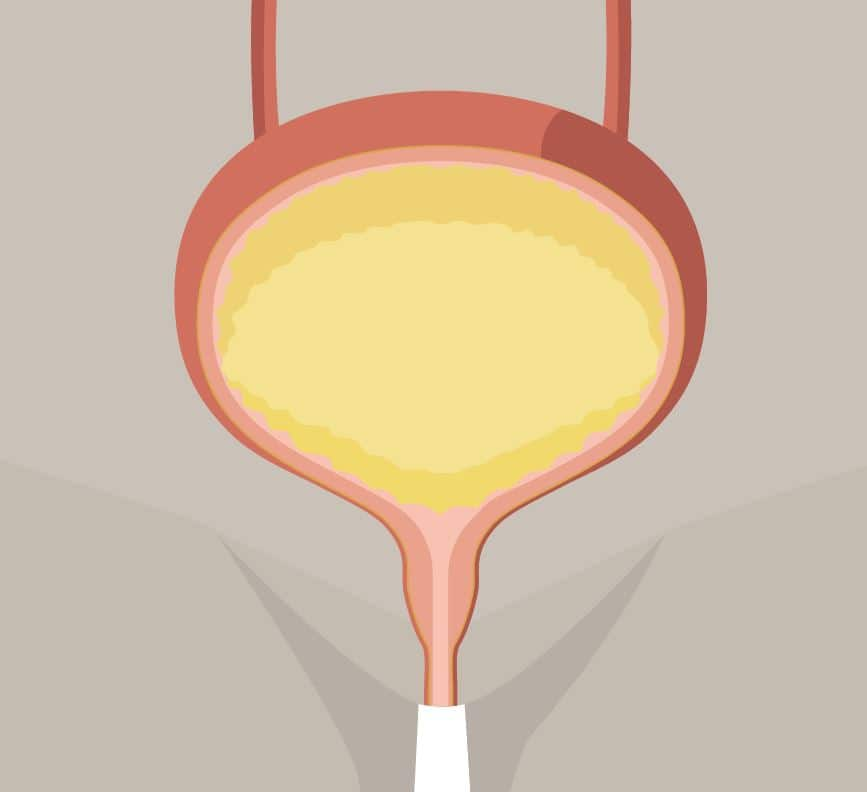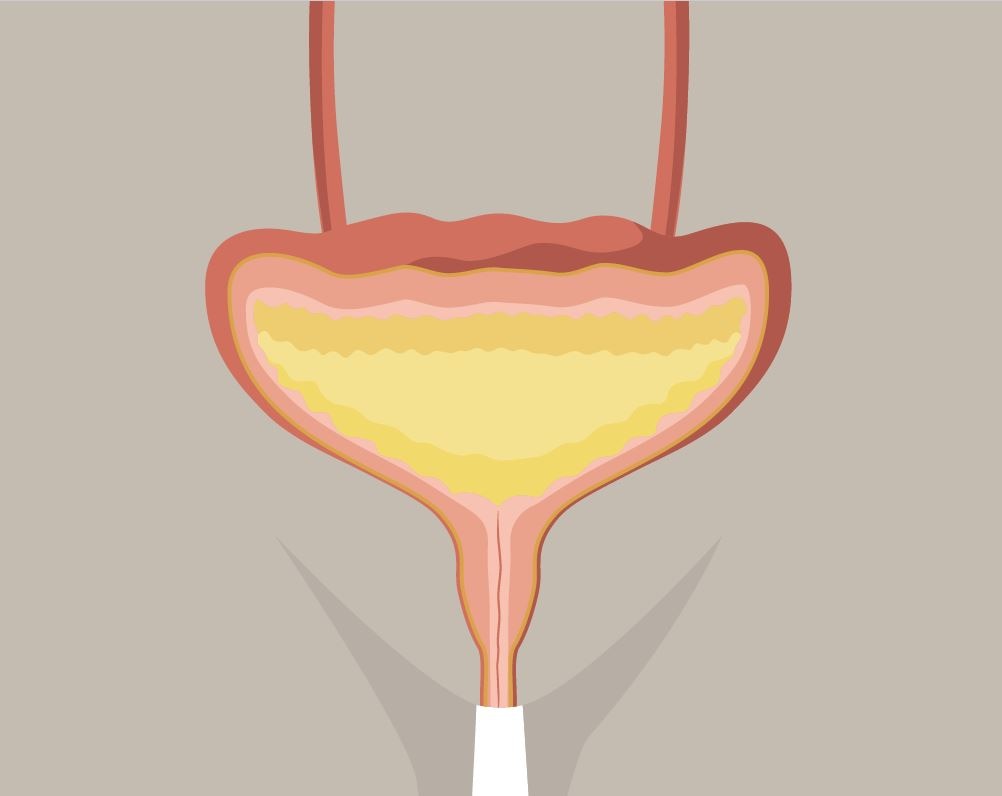
MS and bladder problems

When living with MS
it is common to experience some form of bladder issue during your life. This is because MS causes nerve damage in the areas of your brain and spinal cord that play important roles in the functioning of your bladder.
Some people may find that they need to urinate more frequently or urgently, whereas others may have trouble emptying the bladder, or often feel like their bladder is not fully empty. Bladder problems, if left untreated, can affect your MS and subsequently have a high impact your on quality of life. It’s therefore important to discuss any bladder problems you experience with your nurse or doctor.
How does the bladder work?

1.
The bladder is a hollow organ that stores urine until it can be conveniently expelled from the body. The bladder's walls expand to store urine, and then contract and flatten to empty urine through the urethra.
There are lots of different parts that make up the urinary system. These include the kidneys and ureters, the bladder, a large muscle called the detrusor muscle, nerves, 2 small rings of muscles called sphincters, and the urethra which is the tube that allows urine to pass out of the body. The sphincters serve to guard the opening to the urethra and keep it closed, working like valves.

2.
As the bladder fills, nerve signals are sent to your brain and trigger the need to urinate. Put simply, this is the feeling of needing to go to the toilet. When you are about to urinate, the nerve signals coordinate for the detrusor muscle to tighten which will squeeze urine out of the bladder while the pelvic floor muscles and urinary sphincter muscles relax. This allows urine to leave the bladder through the urethra. When these signals are coordinated, normal urination happens.

How can MS affect the bladder?
You can think of your bladder as a light, and your brain as a switch. Your nerves are like the electric cable that connects the switch to the light and tells the light when to turn on. The electric cable is protected by a plastic coating, just like how myelin protects your nerves.
If the cable’s coating deteriorates, the light might not behave as expected when you flip the switch. This is like how MS can damage the myelin protecting your nerves and garble the signals between your brain and bladder, leading to bladder dysfunctions.

“At first, I didn’t make the connection between my urinary leakage and MS. I had so many symptoms at the time that the leakage was far down on my list. Simply because I didn’t associate it with my condition. And because I didn’t think there was anything that could be done about it.”
Eva, diagnosed with MS

Why do bladder dysfunctions matter?
Recognising your bladder issues and seeking support can help to improve your quality of life when living with MS. If your bladder functions are impaired, the risk of contracting a bladder infection significantly increases, which can further exacerbate MS. Therefore, reflecting on your bladder's behaviour is the first step to ensuring your circuitry is working properly and you are in control of when you turn the light on and off.
